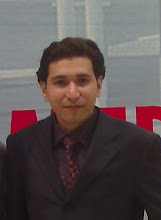Excellence in education, science and research gives a location decisive advantage. Hamburg's academic institutions, many of whom are international in their orientation, have made this their goal. The state and private colleges of higher education as well as numerous first-class research institutes are attracting intellectual talents from both home and abroad. Around 70,000 registered students - of these 9,000 from abroad - and over 9,000 academics join other highly-qualified individuals and people involved in business start-ups to ensure that in and around Hamburg we are always innovating and making new discoveries.
In addition, new ideas and fresh perspectives enrich the culture and flair of the cosmopolitan Hamburg metropolis. Names, data and facts will help you find your way around the metropolis of knowledge.
Tuesday 25 March 2008
Saturday 8 March 2008
Formalities for Doctors from non-EU-States

Generally for the citizens from non-EU-countries, who have already completed their medical training, it is difficult to get work permission to work in the health instiutions in Germany. Physicians from non-EU-Countries need the following:
A. Residence Permit (Aufenthaltserlaubnis)
B. Working Permit (Arbeits- und Berufserlaubnis)
C. License to practise medicine (Approbation): The constitution of Germany gives most government powers to its 16 constituent Bundesländer (states). The foreign medical graduates from non-EU-States have to get the Approbation from the responsible state authorities (Bezirksregierung) as licensing bodies.
Some States demand a so called Adaptationtime (Anpassungszeit) before giving a "Approbation". In this Case the Applicants have to work with a preliminary Professionpermit (vorläufiges Berufserlaubnis) between 12 or 18 Months, depending from which Country they are coming, in a Hospital. The Adaptation-Time must be split between the departments internal medicine, surgery and a third Specialty.
The second step for doctors after getting approbation is to register themselves with the responsible state medical associations (Landesärztekammer). Applicants have to prove, they have sufficient knowledge of the German language (kleines Sprachdiplom vom Goethe Institut) .
A. Residence Permit (Aufenthaltserlaubnis)
B. Working Permit (Arbeits- und Berufserlaubnis)
C. License to practise medicine (Approbation): The constitution of Germany gives most government powers to its 16 constituent Bundesländer (states). The foreign medical graduates from non-EU-States have to get the Approbation from the responsible state authorities (Bezirksregierung) as licensing bodies.
Some States demand a so called Adaptationtime (Anpassungszeit) before giving a "Approbation". In this Case the Applicants have to work with a preliminary Professionpermit (vorläufiges Berufserlaubnis) between 12 or 18 Months, depending from which Country they are coming, in a Hospital. The Adaptation-Time must be split between the departments internal medicine, surgery and a third Specialty.
The second step for doctors after getting approbation is to register themselves with the responsible state medical associations (Landesärztekammer). Applicants have to prove, they have sufficient knowledge of the German language (kleines Sprachdiplom vom Goethe Institut) .
Subscribe to:
Posts (Atom)


